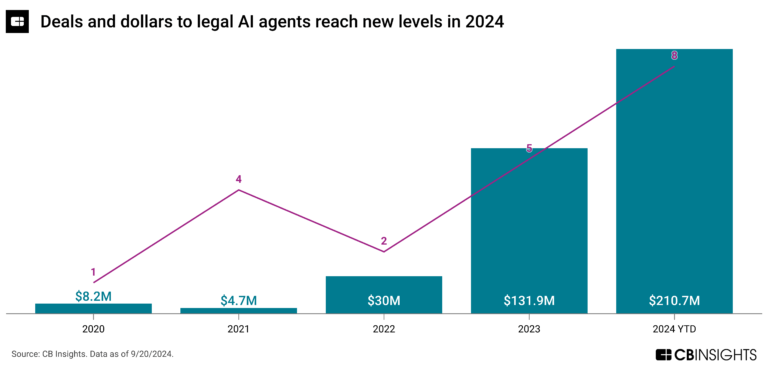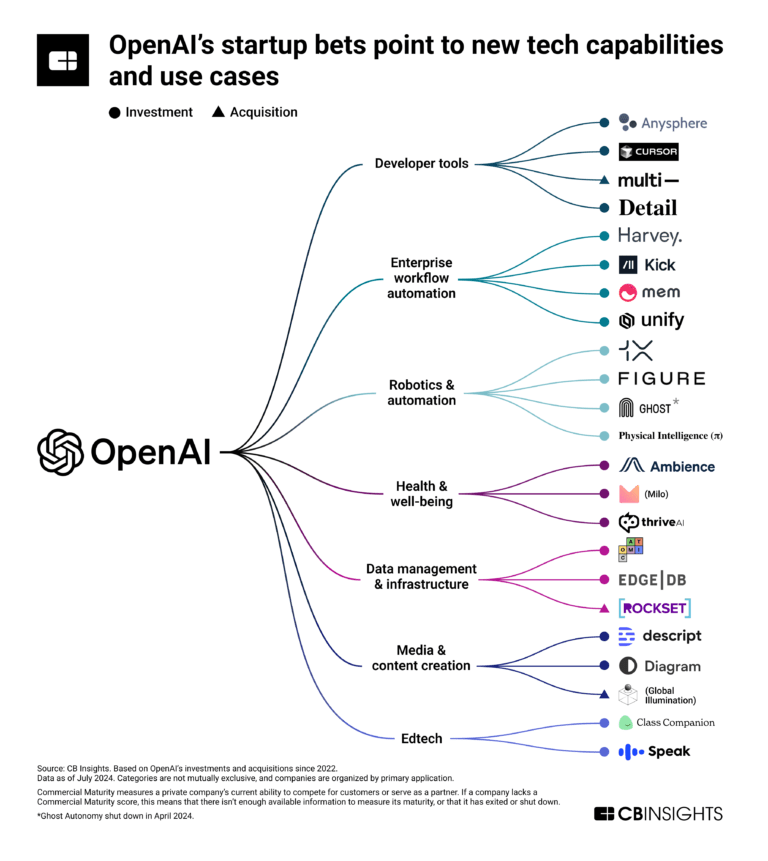
Harvey
Founded Year
2022Stage
Series D | AliveTotal Raised
$506MValuation
$0000Last Raised
$300M | 2 mos agoRevenue
$0000Mosaic Score The Mosaic Score is an algorithm that measures the overall financial health and market potential of private companies.
+68 points in the past 30 days
About Harvey
Harvey serves as a generative AI company that specializes in the legal sector and provides AI-driven solutions for professional services. The company offers a platform for legal workflows with domain-specific models for research, drafting, analysis, and document management. Harvey's primary clientele includes lawyers and law firms seeking to augment legal processes with AI tools. It was founded in 2022 and is based in San Francisco, California.
Loading...
ESPs containing Harvey
The ESP matrix leverages data and analyst insight to identify and rank leading companies in a given technology landscape.
The generative AI — legal case search & summarization market leverages artificial intelligence to analyze vast amounts of legal data, extract relevant information, and produce comprehensive summaries. These platforms combine machine learning and natural language processing to help legal professionals quickly identify applicable precedents and extract key insights from complex legal documents. Solu…
Harvey named as Leader among 7 other companies, including Thomson Reuters, Everlaw, and LegalMation.
Loading...
Research containing Harvey
Get data-driven expert analysis from the CB Insights Intelligence Unit.
CB Insights Intelligence Analysts have mentioned Harvey in 13 CB Insights research briefs, most recently on Mar 6, 2025.
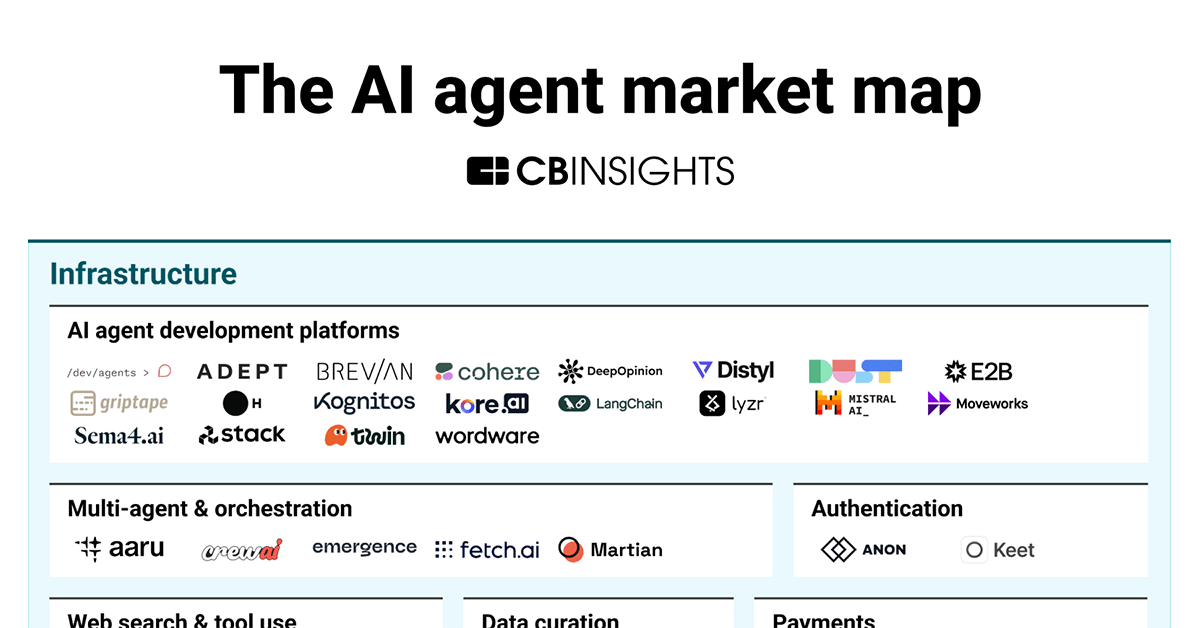
Mar 6, 2025
The AI agent market map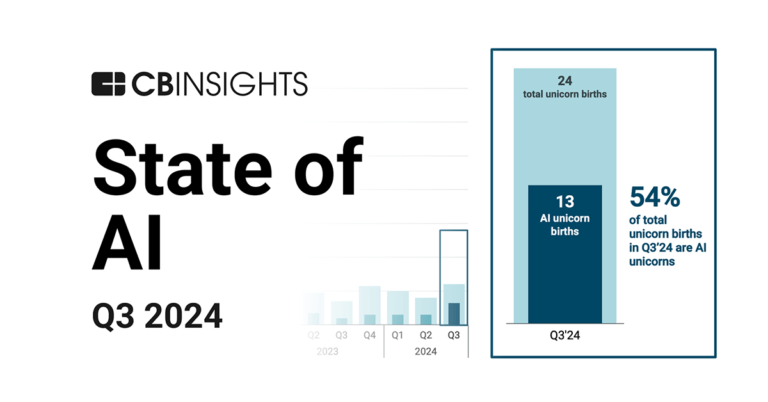
Oct 29, 2024 report
State of AI Q3’24 Report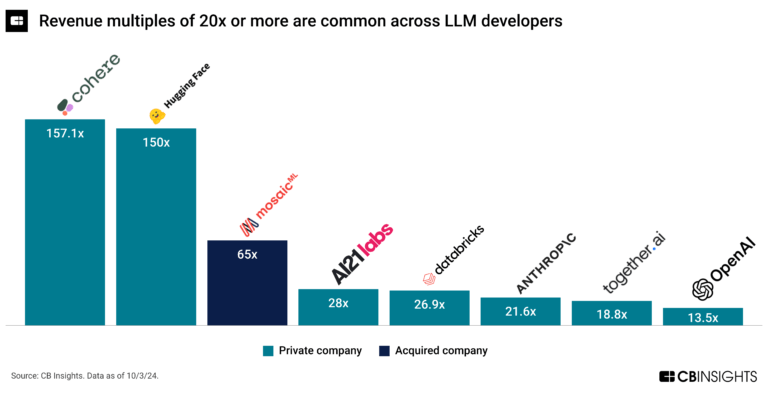
Oct 4, 2024
The 3 generative AI markets most ripe for exits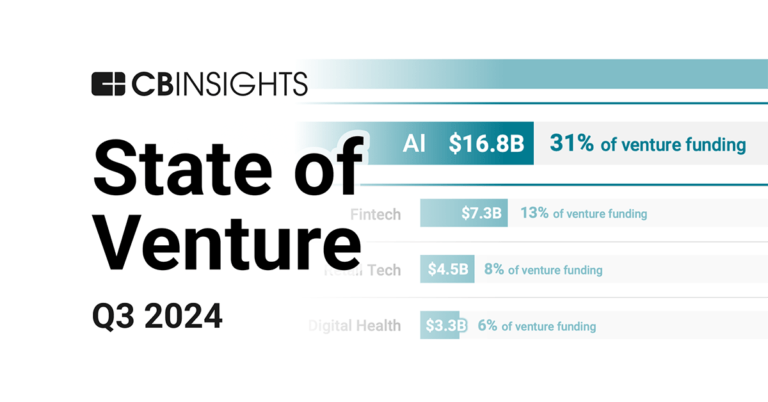
Oct 3, 2024 report
State of Venture Q3’24 Report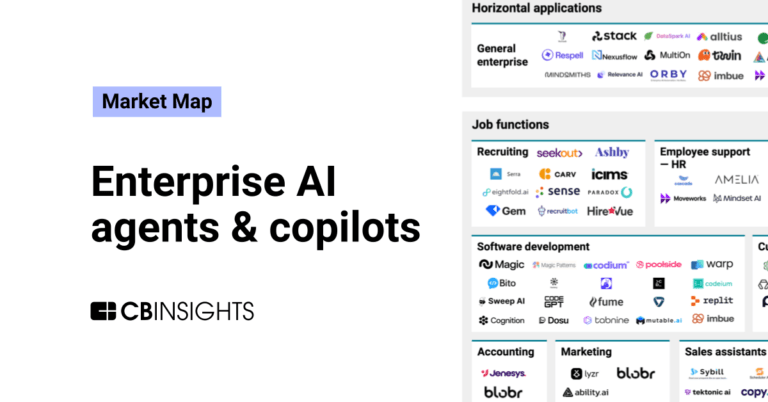
Aug 7, 2024
The enterprise AI agents & copilots market map
Expert Collections containing Harvey
Expert Collections are analyst-curated lists that highlight the companies you need to know in the most important technology spaces.
Harvey is included in 7 Expert Collections, including Unicorns- Billion Dollar Startups.
Unicorns- Billion Dollar Startups
1,270 items
AI 100
100 items
Generative AI 50
50 items
CB Insights' list of the 50 most promising private generative AI companies across the globe.
Generative AI
1,299 items
Companies working on generative AI applications and infrastructure.
Artificial Intelligence
7,221 items
AI Agents & Copilots Market Map (August 2024)
322 items
Corresponds to the Enterprise AI Agents & Copilots Market Map: https://app.cbinsights.com/research/enterprise-ai-agents-copilots-market-map/
Latest Harvey News
Mar 31, 2025
Fredrick Eghosa The legal profession is one of the fastest-evolving fields, whereby artificial intelligence is proving to be a game-changer for lawyers on the go. From research automation to creating contracts, the best AI for lawyers offers unparalleled efficiency and accuracy—you can spend more time on thought processes critical to problem-solving. With the legal tech market projected to reach $25 billion by 2025, adopting AI tools is no longer optional; it’s instead a necessity. Whether you are in research for free AI tools for lawyers or premium ones, be it legal research, document review, or compliance management, these cater to a host of needs that you may have. Furthermore, the best AI courses for lawyers help one learn to use AI effectively. At any rate, it can be frustratingly tiring to cut through so many choices to find a perfect fit. This guide will simplify the process by covering everything you need to know, from the best AI for lawyers to free versions. Key takeaways These days, you can use AI to enhance the efficiency, accuracy, and accessibility of the legal profession. Lawyers increasingly use AI-powered tools that can automate such tasks as carrying out legal research, analyzing contracts, and communicating with clients. The best AI tools for lawyers are CoCounsel by Casetext, Harvey AI, and Diligen. The best free AI tools for lawyers are OpenAI ChatGPT, AI Lawyer, and Humata. The best AI tools for reviewing and drafting contracts are Robin AI, Juto, and Spellbook. Lawyers can pursue personalized training courses to integrate AI into legal practices effectively. Westlaw Edge, Lexis+, and Bloomberg Law are the best AI for legal research. Why lawyers are turning to AI Traditional legal work is challenging and time-consuming. Lawyers consistently report a workload characterized by repetitive tasks like reviewing innumerable documents and undertaking extensive research. AI solves such issues by providing greater efficiency and accuracy. Advertisement Here’s how: Time-consuming research: Lawyers engage in research, which is very important but time-consuming. They must read hours of legal cases, statutes, and precedents to find the necessary information. AI tools can drastically reduce this time by quickly scanning vast amounts of data and providing the most relevant results. It will free up more time for strategic planning and client interaction. Repetitive administrative tasks: Large swaths of legal work comprise routine tasks: standard contract drafting, forms review, and document management. Many of these administrative tasks can be done by AI far more efficiently and with less human error. For example, AI-powered tools will independently create legal documents or even support reviewing contracts to meet required standards while taking the workload off lawyers. Handling large volumes of data: Lawyers often review much information, especially in complex cases. It could be challenging to sort through this manually. AI tools analyze and organize large datasets, identifying key information crucial for a case. It helps lawyers make more informed decisions and avoid overlooking important details. Error reduction and accuracy: Lawyers are required to be very accurate, considering the minute details involved; so, yes, errors do occur. AI is important in reviewing documents, contracts, and case files for mistakes, inconsistencies, and gaps. It reduces the chances of expensive errors and ensures that all legal documentation regarding the latest regulations is well-updated. Improved client service: AI can handle highly time-consuming tasks, leaving lawyers free to build client relationships. AI’s research and document management, in particular, quickens lawyers’ responses to their clients, making their service even better and more personalized. It means faster document generation, faster response to inquiries, and improved communication. Best AI tools for lawyers Artificial Intelligence is changing the legal world by providing tools that improve efficiency, accuracy, and productivity. Here’s a list of the best AI tools for legal professionals: 1. CoCounsel by Casetext CoCounsel is an AI-powered legal assistant for attorney document drafting, legal research, and contract analysis. Advanced AI models leverage comprehension and generate human-like text at a level appreciated by many when tackling various tasks. Key features Legal Research: It summarises case laws and statutes for legal research. Contract Analysis: Performed contract analysis by underlining key clauses and potential issues. Pros It improves the accuracy of legal research. It provides insight into complex legal documents. Cons Who should use CoCounsel by Casetext? CoCounsel is best for law firms and in-house legal departments that want to automate lawyer routines, such as drafting documents or performing legal research. Its powerful features make it suitable for large firms and smaller practices that aim to become more efficient. Techpoint Africa news delivered to your inbox Get the free daily newsletter read by industry experts. 100% free. Unsubscribe anytime. Digest Subscription 2. Harvey AI Harvey AI is an AI-powered tool for lawyers to help create documents, research, and manage cases. It uses machine learning algorithms to comprehend legal terminology and retrieve relevant data. It’s like a goldmine for them. Key features Legal Research: Summarizes case law and statutes. Case Management: This will help organize and manage case information. Pros It has a very friendly user interface. It integrates with existing legal software. Cons Who should use Harvey AI? Harvey AI is best for law firms that want to enhance their document drafting and research. It’s also useful for solo practitioners and large firms to streamline operations more effectively. 3. Diligen Diligen is an AI-driven tool for contract analysis that aids lawyers or other legal professionals in efficiently and precisely reviewing and analyzing contracts. It uses machine learning to identify key clauses and potential risks, making contract reviews quicker and more accurate. Key features Risk Assessment: Evaluates risks and problems found within contracts. Document Management: Maintains the contract documents by categorizing and updating them accordingly. Pros It improves the accuracy of contract analysis. It reduces manual contract review time. Cons Who should use Diligen? Diligen is for law firms or legal departments with a heavy workload of contracting activities who want to achieve greater efficacy with fewer review errors. Free AI tools for lawyers Artificial Intelligence is fast changing the face of the legal profession, with an avalanche of newer tools helping small practices and solo lawyers become more productive without necessarily breaking the bank. Here are some of the best free AI tools that will aid in various legal tasks: 1. OpenAI ChatGPT ChatGPT is a free AI assistant that can perform many tasks, including basic data analysis, research, translation, image and video generation, summarizing, transcription, and, to an essential degree, automation. It can assist attorneys in drafting documents, summarizing case law, and answering legal questions. While ChatGPT is free, OpenAI offers a subscription service called ChatGPT Plus for $20 monthly, providing additional features and functionality. Key features Legal Research: Summarizing case law and legal articles. Question Answering: Answers legal questions with knowledge that already exists. Pros Can handle a wide range of tasks beyond legal work. Regular updates and improvements. The free version has limited access compared to the paid subscription. Who should use OpenAI ChatGPT? ChatGPT is ideal for solo practitioners and small firms seeking an AI tool to help with various tasks, including document drafting and legal research. It is also perfect for those needing immediate answers to legal questions or summaries. 2. AI Lawyer AI Lawyer is a free AI-driven platform that can assist consumers and lawyers in many tasks. The site offers document automation, advanced research, and a mobile app for over-the-air access. It provides a basic free version. Key features Advanced Research: Answers legal questions supported with relevant summaries and information. Mobile Access: It provides a mobile application with easy access to legal tools from anywhere. Pros It offers a variety of features in the free version. Its mobile app improves accessibility. Cons It might not cover all fields of laws comprehensively. Who should use the AI Lawyer? AI Lawyer is ideal for solo practitioners and small law firms that want an inexpensive AI tool to automate documents and conduct legal research. It’s also beneficial for consumers who need assistance with legal documents and understanding legal terms. 3. Humata Humata is a free AI tool designed to assist lawyers in performing legal research, analyzing cases, and reviewing documents. It helps lawyers and other attorneys review voluminous legal documents in minutes or seconds. The free version offers less functionality, while advanced services are in the paid premium plans. Key features Legal Research: It assists in finding relevant case law and statutes. Summarization: It can summarize long legal texts in a few words. Pros It accelerates the research process. User-friendly interface. It does not cover all the legal subjects in depth. Who should use Humata? Humata is ideal for solo practitioners and small firms that want to improve their research capabilities without making a significant investment. It is also helpful for legal professionals who wish to analyze a large volume of documents efficiently. Best AI for contract review and drafting Artificial Intelligence is changing the face of the legal world by offering tools that make reviewing and drafting contracts easier. Here are some of the best AI tools designed for legal professionals: 1. Robin AI Robin AI provides AI-powered contract review and management by assembling the service contributions of engineering, legal, and scientific panels and automating a series of innovations involved in contract making. The suite offers editing suggestions within contracts and manages heavy volumes of legal data to return answers with unprecedented speed. Key features Document Processing: It efficiently handles large volumes of legal documents, saving time and resources. AI-Powered Suggestions: Smart suggestions on the modification and improvement of contracts. Pros Advanced AI is used to take the weight of the workload for complicated legal documents. Suitable for firms handling a large volume of contracts. Cons Who should use Robin AI? Robin AI works great in law firms or legal departments, which often handle many contracts and try to bring order using more advanced AI solutions. Its complex functions make it worthwhile for big firms and small practices that desire increased contract review quality. 2. Juro Juro is an AI contract collaboration platform with end-to-end contract management functionality and AI contract review capabilities. With Juro, businesses can agree on contracts as fast as ten times faster than traditional tools. They can also review, summarize, and draft contracts, all with the AI Assistant of Juro. Key features AI Assistant: Saves much time reviewing, summarizing, and drafting contracts. Collaboration Tools: The platform allows effective collaboration among team members and stakeholders. Pros User-friendly interface. Who should use Juro? Juro caters to the contract management needs of organizations that require end-to-end contract management with advanced AI capabilities. It is suitable for managing contract workflows for large enterprises and small firms. 3. Spellbook Spellbook utilizes AI to increase the velocity of contract drafting automatically. With it, users can rapidly create a first draft based on templates and a clause library. It also saves considerable time when preparing a draft of different contracts. Key features Clause Library: Contains an entire clause library for rapid insertion. Customization: Allows for easy customization of drafts to meet particular needs. Pros It reduces the chances of errors. User-friendly interface. Who should use Spellbook? Spellbook is indispensable for any attorney needing fast drafting of a contract. It also has its place of applicability for significant and minor legal entities wishing to increase productivity regarding contract draft development. Best AI courses for lawyers AI is revolutionizing the legal field, and some background on its uses is becoming a legal necessity. The following are a few of the best AI courses for lawyers: 1. CS50 and AI for lawyers by Harvard Law School The course will introduce lawyers to the basic concepts of computer science and AI. It covers algorithms, data structures, and the ethical implications of AI in the legal context. The course is available online to provide flexibility to busy professionals. Key Features Fundamentals of AI: Covers the basic principles of AI and its legal applications. Ethical considerations: This will discuss the ethical challenges and responsibilities of using AI in legal practice. Pros It has a flexible online format that is suitable for professionals. Comprehensive coverage of relevant topics. Cons Who should get this course? This course is specifically designed for lawyers who want an introduction to computer science and AI and are interested in or concerned about the ethical issues surrounding AI in the legal profession. 2. AI for lawyers and other advocates specialization by Coursera This four-course specialization on artificial intelligence (AI) at the University of California will teach the practical use of AI in legal practice. It covers topics from using AI tools to perform legal research and analyze contracts to the ethical considerations of AI in the legal world. The course is available online on Coursera for $59/month. Key features Practical Applications: Discuss how you can use AI in various facets of legal work. Ethical Considerations: It discusses the ethical dilemmas associated with the deployment of AI in legal practice. Lab Projects: It includes practical projects applying learning. Pros Online flexible format. Cons Time commitment might vary according to individual pace. Who should get this course? This specialization is ideal for lawyers and other legal professionals who need to learn more about AI tools and their uses in practice. 3. Legal tech and AI for lawyers by Udemy This course will help give an overview of legal technology and AI tools to help streamline processes in the legal profession. It ranges from eDiscovery and legal research to contract management software. This course is available online at $10. Key features Applications of AI: It discusses the application of AI in law practice. Practical tools: It brings insight into the tools that enhance legal workflow. Pros It covers a wide range of subjects. Cons Time commitment may vary depending on individual pace. Who should get this course? This course’s target audience would include all lawyers and other legal professionals who wish to gain a basic understanding of legal technology and AI applications in the legal field. Enhancing legal research with AI Artificial Intelligence is bound to enter legal research and provide tools to simplify case law research and statutory analysis. The following are a few artificial intelligence tools developed for this purpose. 1. Westlaw Edge Westlaw Edge is an AI-driven legal research tool with an expert suite of features and functionalities to help hasten legal research. It provides access to millions of legal documents, including case law, statutes, and regulations. The AI capabilities assist in quickly identifying relevant information, saving time, and improving resource efficiency. Key features AI-Driven search: Utilizes sophisticated algorithms that yield accurate results in searches to help users pinpoint relevant case law, statutes, and legal analysis. Brief analyzer: Assists in reviewing the briefs legally, verifies citations, and offers suggestions to improve drafts or responses. Points of law: Provides the best case for a particular point of law; thus, it can quickly assess which precedents would strengthen the arguments. Pros User-friendly interface. Training may be required to utilize all features fully. Who should use Westlaw Edge? Westlaw Edge is ideal for law firms and professionals who need an efficient, all-in-one research tool. Its advanced AI features make the platform well-suited for large firms and smaller practices wanting to develop their research capabilities. 2. Lexis+ Lexis+ is a legal research platform using AI to help users find, draft, summarize, and analyze documents on various legal questions. Its ease of use, intuitive interface, and vast resources make it a go-to solution. Key features Drafting Assistant: Provides the user with suggestions or templates for drafting legal documents. Summarization Tools: This helps the attorney quickly grasp lengthy legal documents. Pros Cons The interface may be confusing for some users at first. Who should use Lexis+? Lexis+ is for the general legal professional who wants or needs a good research tool with deeper artificial intelligence capabilities. It benefits large and small firms seeking an edge in research and drafting. 3. Bloomberg Law Bloomberg Law uses AI-driven legal research to help researchers identify leading case law, guiding legal principles, and the best language to support their arguments. It also includes brief analysis tools that let users review the legal briefs, check citations, and find suggestions for putting together a new draft or response. Key features AI-Driven Case Law Research helps uncover the leading case law, guide legal principles, and efficiently use the best language to support one’s argument. Brief Analyzer: It helps review legal briefs, review citations, and make recommendations to enhance a draft or a response. Pros User-friendly interface. Training may be required to utilize all features fully. Who should use Bloomberg Law? Bloomberg Law is suitable for law firms willing to use just one powerful tool for effective research. Its advanced AI functionality makes it ideal for large firms and applies to small practices looking to leverage more advanced research capabilities. How to choose the right AI tool for your law practice Choosing the right AI tool for your law practice is a huge decision, but it doesn’t need to be daunting. There are so many out there, and you should consider the size of the practice, budget, and the specific tasks you want to have helped with. Here are some simple steps to guide you to choose the right AI tool for your law practice: Consider the Size of Your Practice: When choosing the appropriate AI tool for your legal practice, consider the size of your law practice. If a lawyer has a smaller firm, then what he is searching for in his tool would be friendly usage, budget-friendly cost, and multitasking legal research or document management. Larger firms could require advanced-level tools to deal with specialized tasks such as reviewing contracts or monitoring compliances. Set a Budget: AI tools vary in price, so the budget should guide your choice. There are free AI tools for lawyers that can handle simple tasks; if you want advanced features, you may want to invest in a paid plan. Look for tools that offer a trial period to test them out before making a long-term investment. Identify Your Specific Needs: Consider what you are trying to outsource to artificial intelligence. Are you sweating over legal research, or is someone needed to help write contracts? It is essential to know that some AI tools specialize, such as purely research-oriented tools, while others are more integrated and offer anything. Knowing where your pain points lie or what you believe you need most will help you implement a suitable tool. Check for Ease of Use: The best AI tool for lawyers is easy to use, even by people who are not tech-savvy. Look for ease of use in its interface, and find out whether there is good customer support to help you if you have any problems. User-friendly tools can save you much time and frustration. AI Ethics and Legal Compliance Furthermore, when you use AI tools in legal practices, consider ethical issues such as data privacy and accuracy and the actual use of AI. The key considerations will include the following: Data privacy: Lawyers deal directly with sensitive customer information, and its protection is critical. To such an AV, if you adopt AI tools for your work pursuits, ensure at all times that the software you use protects privacy laws such as GDPR or HIPAA, whatever the case may be in your professional setting. A good AI tool should have features that strengthen security for your client’s confidential information and simultaneously avoid data leakages. Information accuracy: AI can help attorneys with faster processing, but no tool is perfect. Hence, you need to cross-check the output provided by AI for its accuracy. If AI suggests legal precedents or contract clauses, ensure they are appropriate and correct. Over-reliance on AI without actually reviewing its work may lead to mistakes that could affect your clients’ cases. Ethical use of AI: You must ethically apply AI in your legal practice. AI tools should support, not supplant, your professional judgment. Make sure AI enhances your skills and provides better service to your clients, not to make decisions without human input. It’s also essential to ensure that AI systems are fair and do not discriminate based on race, gender, or other personal characteristics. Future trends in legal AI The legal profession is one of the fastest-evolving, and artificial intelligence is at the forefront of this change. Here are some of the key developments to watch: Predictive analytics: By analyzing past data and perceiving the running pattern, AI continues to develop its predictive capability to provide legal outcomes. It would enable lawyers to make more accurate predictions about client case outcomes and help them make informed strategic decisions. Automated document generation: AI-enabled automation will greatly regularize the creation of legal documents such as contracts and briefs. AI tools will support and help draft these documents rapidly and perfectly, thus giving lawyers and others more time for the main work. Improved Legal Research: AI will transform legal research by quickly identifying relevant information and providing appropriate resources. This capability will reduce the research process by helping attorneys access critical information more efficiently. AI-Powered legal assistants: AI-driven virtual assistants will be key to managing schedules, communicating with clients, and handling routine tasks. This integration will contribute to better daily operations and client interaction. Improved access to justice: AI will make legal services more affordable, enabling more people to understand and navigate them. It will also democratize access to legal resources, allowing the people to access better justice. Frequently asked questions What is the best AI tool for lawyers? The best AI tools for lawyers are CoCounsel by Casetext, Harvey AI, and Diligen. They are highly rated for legal research, contract analysis, and compliance. Are there free AI tools for legal research? Yes. Free AI tools for lawyers, such as OpenAI ChatGPT, AI Lawyer, and Humata, provide some free legal research. How can AI help with contract drafting? AI can streamline drafting contracts by automating repetitive tasks, suggesting clauses, and ensuring legal accuracy. Which AI tools are best for small law firms? The best AI tools for small firms are OpenAI ChatGPT, Humata, Juto, and Lexis+, among other options, which are affordable and user-friendly, allowing for legal research and case management. What is the most reliable AI for legal compliance? Thomson Reuters’ Legal Tracker and IBM Watson Compliance are the most reliable AIs for legal compliance. Both are proven reliable when performing compliance exercises in legal instances. Can AI replace lawyers in the future? AI can assist but not replace lawyers’ work, for it lacks nuanced judgment and ethical reasoning. What are the benefits of using AI for legal research? AI improves efficiency, reduces human error, and provides faster access to relevant case law and statutes. How do I choose the right AI tool for my law practice? Consider your practice’s peculiar needs, budget, ease of use, features, and customer support for any tool. Conclusion The integration of artificial intelligence into the legal profession is increasing. Venture capitalists invest heavily in startups like Eve and Robin AI to develop programs that automate legal workflows. Law firms now use AI tools such as CoCounsel and ChatGPT to automate tasks such as document reviews and research and manage their work more efficiently. Meanwhile, Harvard Law School and Berkeley Law are expanding their curricula to train future lawyers on the increasingly dominant use of AI. As AI technology evolves, so will its role in legal practice, thereby pressing the attorneys to move along with the times. Read next
Harvey Frequently Asked Questions (FAQ)
When was Harvey founded?
Harvey was founded in 2022.
Where is Harvey's headquarters?
Harvey's headquarters is located at 575 Market Street, San Francisco.
What is Harvey's latest funding round?
Harvey's latest funding round is Series D.
How much did Harvey raise?
Harvey raised a total of $506M.
Who are the investors of Harvey?
Investors of Harvey include Elad Gil, OpenAI Startup Fund, Sequoia Capital, Kleiner Perkins, Conviction Capital and 8 more.
Who are Harvey's competitors?
Competitors of Harvey include Lexroom, Alexi, Ivo, Eve, Robin AI and 7 more.
Loading...
Compare Harvey to Competitors

LegalMation provides artificial intelligence solutions for the legal sector, focusing on litigation and dispute resolution. The company offers tools that assist in the creation of legal documents such as responsive pleadings, discovery requests, and demand letters, along with analytics and matter profiling to support legal workflows. LegalMation serves corporate legal departments, law firms, and insurance companies. It was founded in 2017 and is based in Los Angeles, California.

Alexi specializes in generative artificial intelligence (AI) for the legal sector. It focuses on enhancing litigation processes. The company offers AI enabled solutions that generate legal research memos, assist in litigation argument brainstorming, and automate routine litigation tasks. Alexi primarily serves law firms of various sizes and in-house legal teams. It was founded in 2017 and is based in Toronto, Canada.

Legora operates an artificial intelligence platform designed to support legal professionals within the legal sector. The company offers tools that aid in legal document review, drafting, and legal research, thus improving the efficiency of teams. Legora's solutions are tailored to the needs of firms, providing a collaborative workspace that integrates with existing workflows for research, document analysis, and drafting. Legora was formerly known as Leya. It was founded in 2023 and is based in Stockholm, Sweden.
Lexroom assists with legal research and drafting within the legal industry. The company provides an AI assistant that allows legal professionals to conduct research, draft documents, and analyze legal information. Lexroom serves the legal sector, offering tools to support the workflow of lawyers and legal teams. It was founded in 2023 and is based in Milan, Italy.

DeepJudge focuses on using artificial intelligence (AI) to enhance knowledge search capabilities within the legal sector. Its main offerings include an AI-powered search engine that allows legal professionals to intuitively access and use institutional knowledge from extensive document libraries using natural language processing. DeepJudge's technology is designed to transform document overload into a strategic advantage by providing intent-based search and AI-predicted metadata, thereby improving service delivery to clients and operational efficiency for legal firms. It was founded in 2021 and is based in Zurich, Switzerland.
LawDroid provides AI-driven solutions for the legal industry, offering tools for legal research, document handling, and client interactions. Their products include an AI legal assistant for researching cases, drafting communications, and summarizing documents, as well as a platform for legal professionals to create AI tools without programming knowledge. It is based in Long Beach, California.
Loading...

